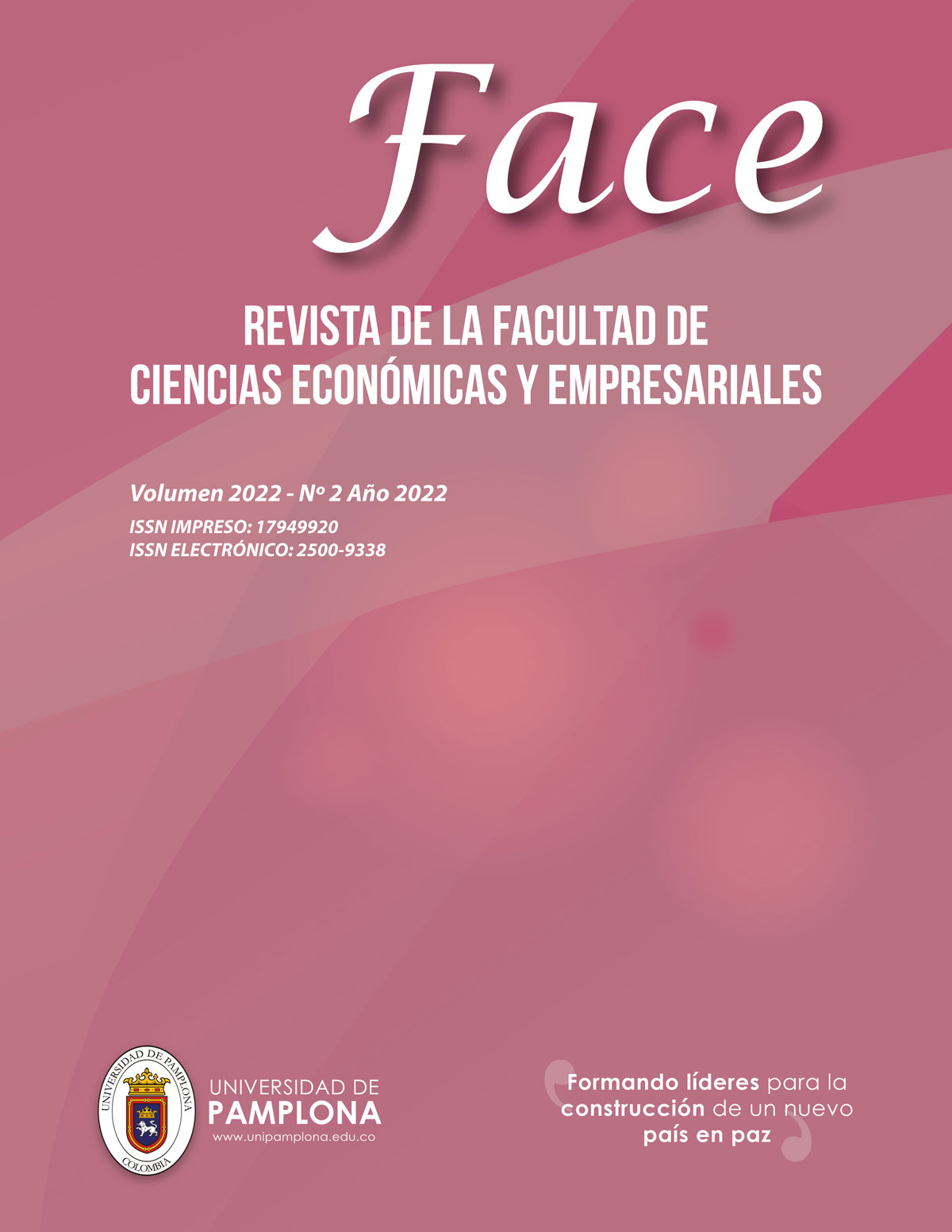Model of Social Marketing in Health in Mexico during COVID-19
DOI:
https://doi.org/10.24054/face.v22i2.1335Keywords:
modelo, mercadotecnia social, salud, México, Covid-19.Abstract
Marketing has undergone significant changes with the innovation and digitization of products and services, leading to the emergence of Marketing 5.0, which prioritizes understanding consumer behavior through technological interaction. Faced with the challenges of COVID-19, institutions, especially in the healthcare sector, have had to adapt. Social marketing in healthcare becomes crucial when analyzing consumers of healthcare services, being the focus of advertising strategies. The healthcare sector has intensified its advertising efforts by disseminating messages through various channels to raise awareness among the population.
The aim of this research is to validate the model of social marketing in healthcare, previously proposed, by evaluating its reliability, validity, and associated hypotheses. A methodological design was employed, including the application of a questionnaire and data analysis through confirmatory factor analysis and structural modeling. The results suggest a good fit of the social marketing model in healthcare.
Downloads
References
Anderson, J.C. y Gerbing, D.W. (1988). Structural Equation Modeling in Practice: A Review and Recommended Two-Step Approach. Psychological bulletin, 103(3), 411-423. https://doi.org/10.1037/0033-2909.103.3.411
Bagozzi, R.P. y Yi, Y. (1988). On the evaluation of structural equation models. Journal of the Academy of Marketing Science, 16, 74–94. https://doi.org/10.1007/BF02723327
Bender, L. (2020). Mensajes y acciones importantes para la prevención y el control del COVID-19 en las escuelas. UNICEF, WHO. Recuperado de https://www.unicef.org/media/65851/file/Key%20Messages%20and%20Actions%20for%20COVID-19%20Prevention%20and%20Control%20in%20Schools_Spanish.pdf
Delice, P.A., Vargas, D. y Donoso, J. (2019). Capítulo 4. Encuesta de percepción de violencia en Guerrero 2018: Validación y resultados. En: Vargas, D. (Coord.), Aspectos metodológicos para la investigación social: Modelos de ecuaciones estructurales. Ciudad de México: UNAM
Duarte Rey, D. M., Barrientos Rosales, M. de los Ángeles, & Castro Alfaro, D. (2019). La subutilización del neuromarketing en Colombia como herramienta de posicionamiento de marca.Enfoque Disciplinario,4(1), 28-36. Recuperado a partir de http://enfoquedisciplinario.org/revista/index.php/enfoque/article/view/17
Ferreira, G.B. (2021). Quando as notícias importam. Fontes, confiança e desinformação em tempos de Covid-19. En: Rui, F. y Ferreira, I. Perspectivas multidisciplinares da Comunicação em contexto de Pandemia. Lisboa: Coleção ICNOVA. https://www.icnova.fcsh.unl.pt/perspectivas-multidisciplinares-da-comunicacao-em-contexto-de-pandemia-vol-i/
Fornell, C. y Larcker, D.F. (1981). Evaluating structural equation models with unobservable variables and measurement error. Journal of Marketing Research, 18(1), 39-50. https://doi.org/10.2307/3151312
Holden, A.C.L., Nanayakkara, S., Skinner, J., Spallek, H. y Sohn, W. (2021). What do Australian health consumers believe about commercial advertisements and testimonials? a survey on health service advertising. BMC Public Health, 21(74), 1-12. https://doi.org/10.1186/s12889-020-10078-9
Masip, P., Aran-Ramspott, S., Ruiz-Caballero, C., Suau, J., Almenar, E. yPuertas-Graell, D. (2020). Consumo informativo y cobertura mediática durante el confinamiento por el Covid-19: sobreinformación, sesgo ideológico y sensacionalismo. El profesional de la información, 29(3). https://doi.org/10.3145/epi.2020.may.12
Nielsen, R.K., Fletcher, R., Newman, N., Brennen, J.S. y Howard, P.N. (2020). Navigating the ‘Infodemic’: How People in Six Countries Access and Rate News and Information about Coronavirus. Oxford: Reuters Institute for the Study of Journalism. https://reutersinstitute.politics.ox.ac.uk/infodemic-how-people-six-countries-access-and-rate-news-and-information-about-coronavirus
Nunnally, J.C. y Bernstein, I.H. (1994). Psychometric Theory. New York: McGraw-Hill.
OMS (2021). Campañas mundiales de salud pública de la Organización Mundial de la Salud, Recuperado de https://www.who.int/es/campaigns
Rando, D. (2020), Eficacia de la comunicación sanitaria vía redes sociales, Tesis de doctorado, Universidad de Málaga. https://riuma.uma.es/xmlui/handle/10630/21230
Ruiz, G.A., Aguilera, A., Juárez, B. y Amarillas, V.A. (2021). Técnicas de análisis cuantitativo para economía y mercadotecnia. México: Universidad Autónoma de Coahuila y Ediciones de Laurel.
Ruiz, G.A., Juárez, B. y Aguilera, F. (2021). Mercadotecnia social en la salud en tiempos de COVID-19. Revista de la Facultad de Ciencias Económicas y Empresariales, 21(2), 22-33. https://doi.org/10.24054/01204211.v2.n2.2021.4652
Secretaría de Salud (2010). Manual de mercadotecnia social en salud, Recuperado de https://docplayer.es/260280-Secretaria-de-salud-manual-de-mercadotecnia-social-en-salud.html
Societies, I. F. (2020). International Federation of Red Cross and Red Crescent Societies. Obtenido de https://media.ifrc.org/ifrc/2020/05/16/la-importancia-de-una-buena-comunicacion-en-tiempos-del-covid-19/?lang=es
Sundstrom, B., DeMaria, A. L., Ferrara, M., Meier, S., Vyge, K., Billings, D., DiBona, D. y McLernon Sykes, B. M. (2021). You Have Options: Implementing and evaluating a contraceptive choice social marketing campaign. Medicine Access @ Point of Care, 5, 1-10. https://doi.org/10.1177/23992026211003499
Vargas, D. (Coord.). (2019). Aspectos metodológicos para la investigación social: Modelos de ecuaciones estructurales. Ciudad de México: UNAM.
Downloads
Published
Versions
How to Cite
Issue
Section
License
Copyright (c) 2022 FACE: Revista de la Facultad de Ciencias Económicas y Empresariales

This work is licensed under a Creative Commons Attribution-NonCommercial-ShareAlike 4.0 International License.





